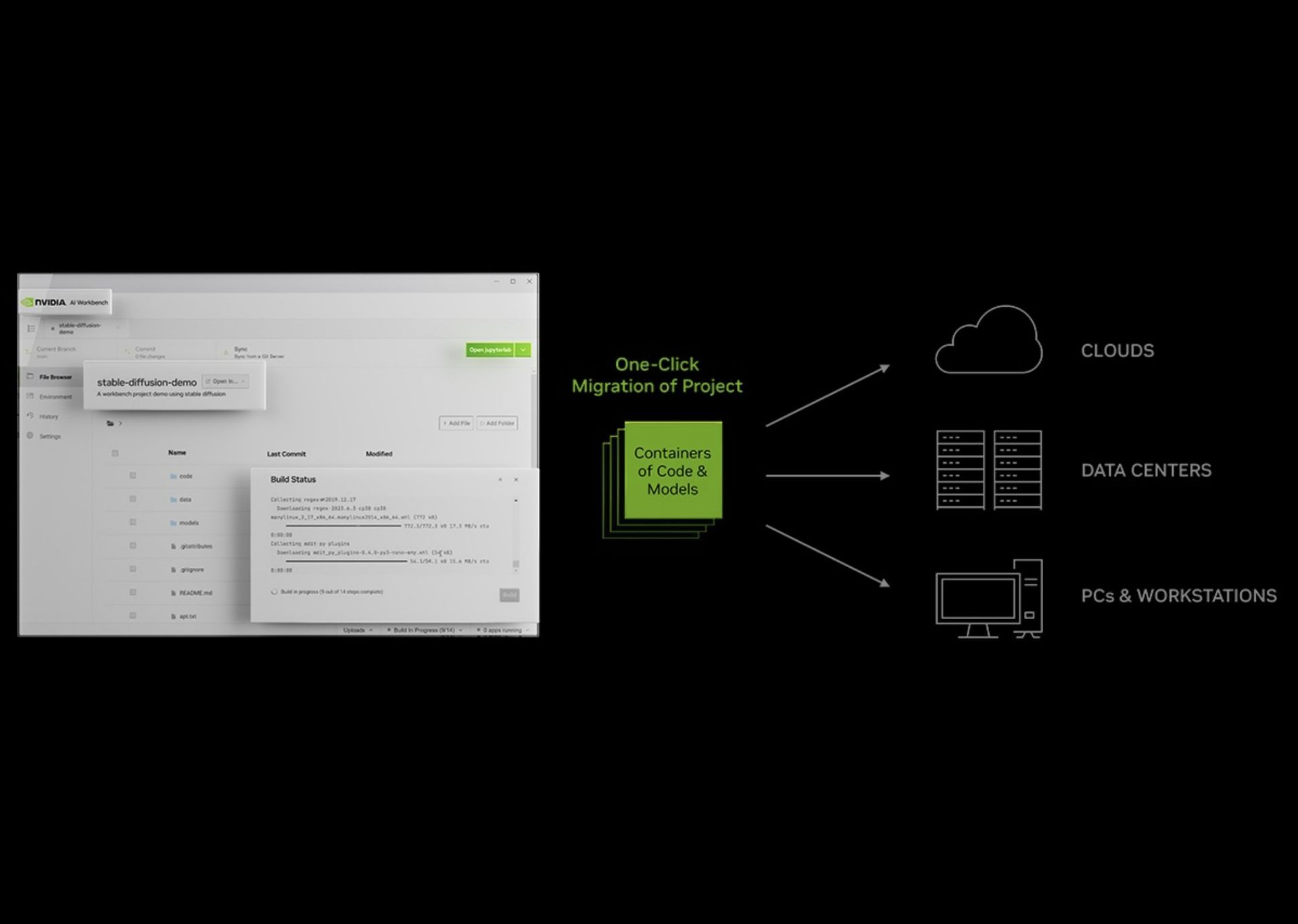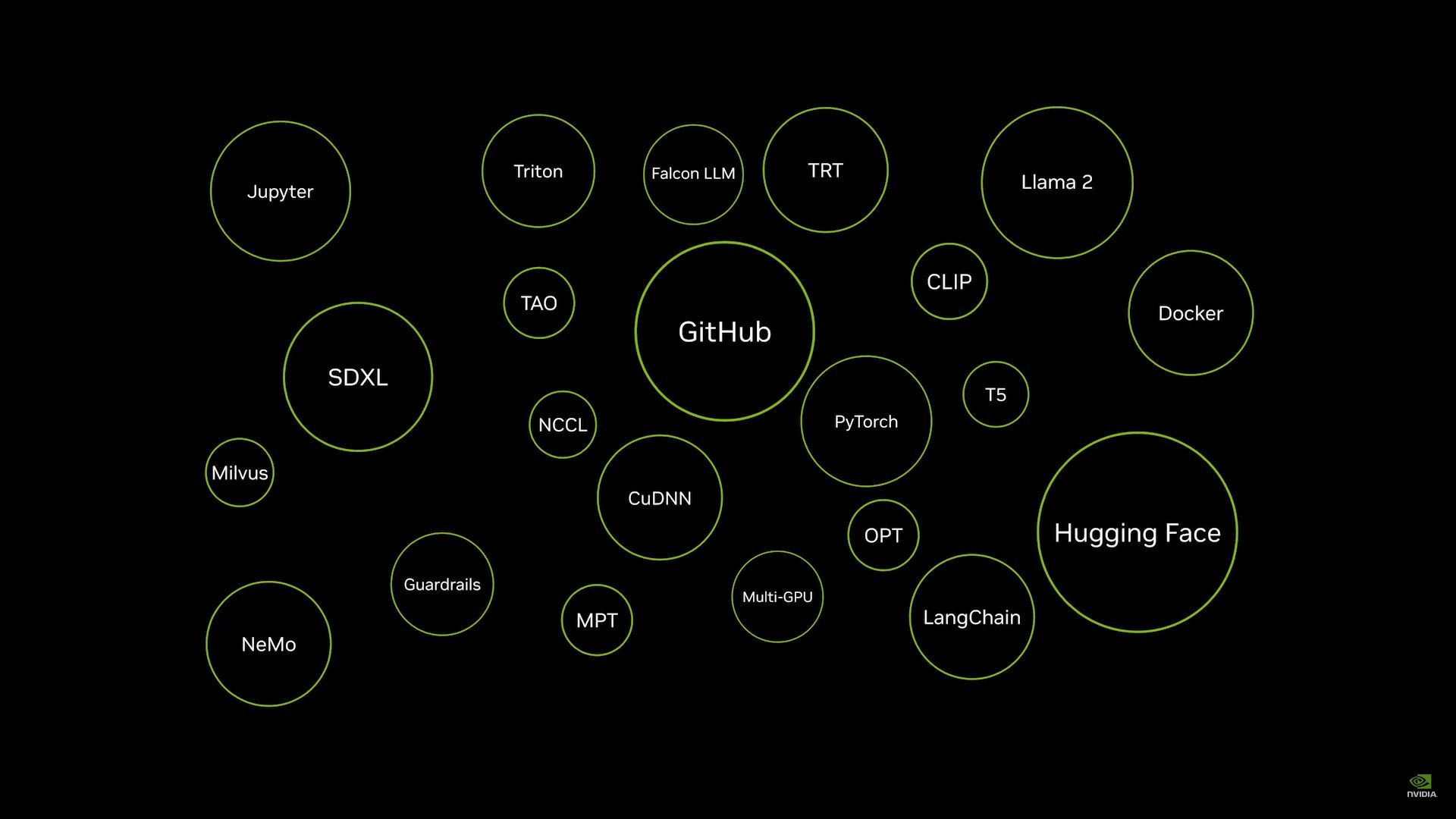As the curtains rise on SIGGRAPH, the annual academic extravaganza centered around artificial intelligence, Nvidia AI Workbench is unveiled as a groundbreaking platform that aims to revolutionize the landscape of generative AI model creation and customization. This innovation is engineered to facilitate the seamless development, testing, and fine-tuning of generative AI models directly on personal computers and workstations, prior to orchestrating their deployment on data centers and public clouds.
During a captivating keynote address at the event, Nvidia’s visionary founder and CEO, Jensen Huang, emphasized the importance of democratizing AI capabilities by making them universally accessible. “In order to democratize this ability, we have to make it possible to run pretty much everywhere,” Huang iterated, highlighting the democratizing ethos underpinning the new platform.

What are the capabilities of Nvidia AI Workbench?
AI Workbench emerges as a user-friendly interface, granting developers unparalleled flexibility to iteratively refine and assess models sourced from popular repositories like Hugging Face and GitHub. Through harnessing proprietary data, developers can meticulously fine-tune and experiment with these models, while also capitalizing on cloud computing resources when scalability demands arise.
Manuvir Das, the VP of enterprise computing at Nvidia, illuminated the genesis of AI Workbench, attributing it to the intricate challenge of customizing large AI models. Complex AI projects at the enterprise level often entail navigating through an intricate web of repositories to discover the ideal framework and tools. This process becomes even more labyrinthine when the projects necessitate transitioning between different infrastructures.
The metamorphosis of AI models into production-ready assets is frequently fraught with setbacks. According to a survey conducted by KDnuggets, a prominent platform in the data science and business analytics realm, a significant majority of data scientists revealed that over 80% of their projects encounter obstacles before culminating in a deployed machine learning model. Gartner, a leading research and advisory company, concurs with this sentiment, estimating that nearly 85% of large-scale data projects falter due to infrastructural impediments.

Das articulates the urgency faced by enterprises worldwide in crafting generative AI models and applications. He affirms, “Nvidia AI Workbench provides a simplified path for cross-organizational teams to create the AI-based applications that are increasingly becoming essential in modern business.”
The degree of simplicity embodied by this path remains open to interpretation. However, AI Workbench offers developers the means to amalgamate models, frameworks, software development kits (SDKs), and libraries from open-source resources into a cohesive workspace. This unification streamlines the creative process and offers a unified environment for seamless collaboration.
The surge in demand for AI, particularly generative AI, has instigated a surge in tools that cater to customizing large-scale, general models for specific use cases. Startups like Fixie, Reka, and Together are democratizing AI customization, enabling companies and individual developers to mold models to their requirements without incurring the exorbitant costs associated with cloud compute services.
Nvidia AI Workbench takes a distinctive route to fine-tuning, opting for a decentralized approach that centers on local machine refinement, as opposed to relying solely on cloud services. This approach not only aligns with Nvidia’s strategic thrust, underscoring its AI-accelerating GPUs, but also resonates with developers seeking a non-restrictive arena for AI model experimentation, free from sole dependence on a single cloud or service provider.

The symbiotic relationship between AI-driven GPU demand and Nvidia’s soaring revenue is undeniable. With its market cap briefly breaching the $1 trillion mark in May, Nvidia reported a remarkable $7.19 billion in revenue, reflecting a 19% increase from the previous fiscal quarter. The company’s role as a trailblazer in AI and its arsenal of AI-accelerating GPUs remain pivotal in shaping the evolving AI landscape.
In an epoch marked by ever-evolving AI capabilities, Nvidia AI Workbench stands as a testament to the democratization of AI, offering a transformative platform that empowers developers to sculpt and refine AI models with unparalleled precision and creativity. This innovative stride propels AI closer to ubiquitous accessibility, fostering a future where AI is harnessed by diverse minds to fuel innovation across industries.
Featured image credit: Nvidia





